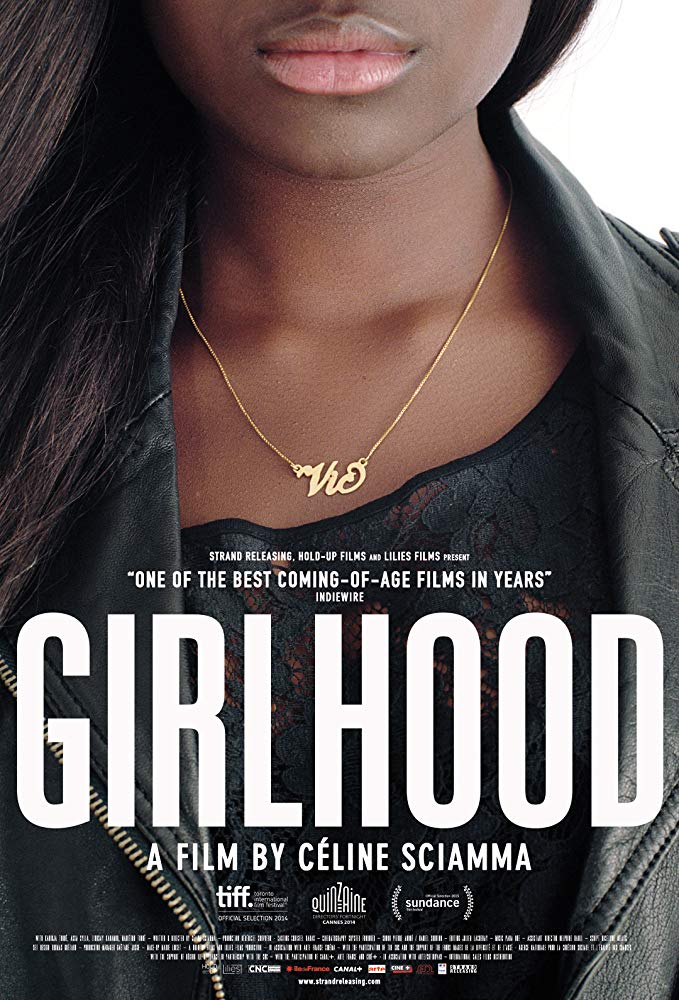by Chris Feil
 “Shine bright like a diamond...”
“Shine bright like a diamond...”
I could (and have) go on ad nauseum about the cinematic relationship between music and the emotions of teenagers, how movies can embody and amplify the way music helps mold our sense of self in youth. But of all the recent films as keyed into this, none of them shatters the fourth wall for empathic purposes as Céline Sciamma’s coming-of-age tale Girlhood. Here she uses the already momentous track “Diamonds” by Rihanna to its own iconic end, embodying female togetherness and the spirit of youth that once made us all feel infinite.
It’s one of the most singular and ecstatic movie moments of the past decade, certainly an essential scene as people begin to reflect on the movie decade...
The scene comes roughly a half hour into the film, as the impressionable Marieme (played by the stunning Karidja Touré) has begun to be welcomed into the fold of a misbehaving but united group of young women. Immediately they feel like an escape from her tough home life and her studies. The girls bully their way into some quick cash for a getaway to Paris, and here is where Marieme’s place in the group is cemented.
Sciamma displays an ironic musical sensibility in the film’s opening, introducing a team playing American football set to tough music, only to reveal the players to be young women and both teams embracing in mutual support. But that beginning moment still doesn’t quite compare for the emotionally transportive force Sciamma deploys with Rihanna.
At the first chord, Sciamma’s image as gone electric, making you feel an immediate kinetic shift in the film. The song begins, one of Marieme’s friends lipsyncing along. Suddenly she looks up and directly into the camera, a shocking break of the film’s fourth wall and the gritty reality depicted thus far. In a few notes of “Diamonds”, it feels like the film has shifted into a whole new identity.
The song continues, a smile emblazoned on the girl’s face. The other friends join in, creating the kind of joyful sing-a-long performance for eachother we’ve all experienced as young friends exalting eachother. But that fourth wall break is integral here, serving as an invitation into their musical display of shared affection and power, a revelatory and unencumbered moment of youth black femininity. But where is Marieme in this?
As soon as we can think of her in the equation, Sciamma cuts away to Marieme on the bed watching this take place, positioned exactly where we were as her friend looked into the camera. The invitation wasn’t just for us to participate in their bliss, but also welcoming Marieme into their group. It’s Sciamma placing us directly into the experience of her protagonist, lowering our defenses for the sadder days for Marieme to come, demanding that we empathize with her journey. And also understand how such an alliance, particularly in youth, can feel like a ticket out of our personal pain.
She joins the girls, Sciamma returning us to the role of observer. They dance and then the bass drops; at the song’s emotional climax, their voices emerge singing along. It’s complete euphoria.
All Soundtracking installments can be found here!